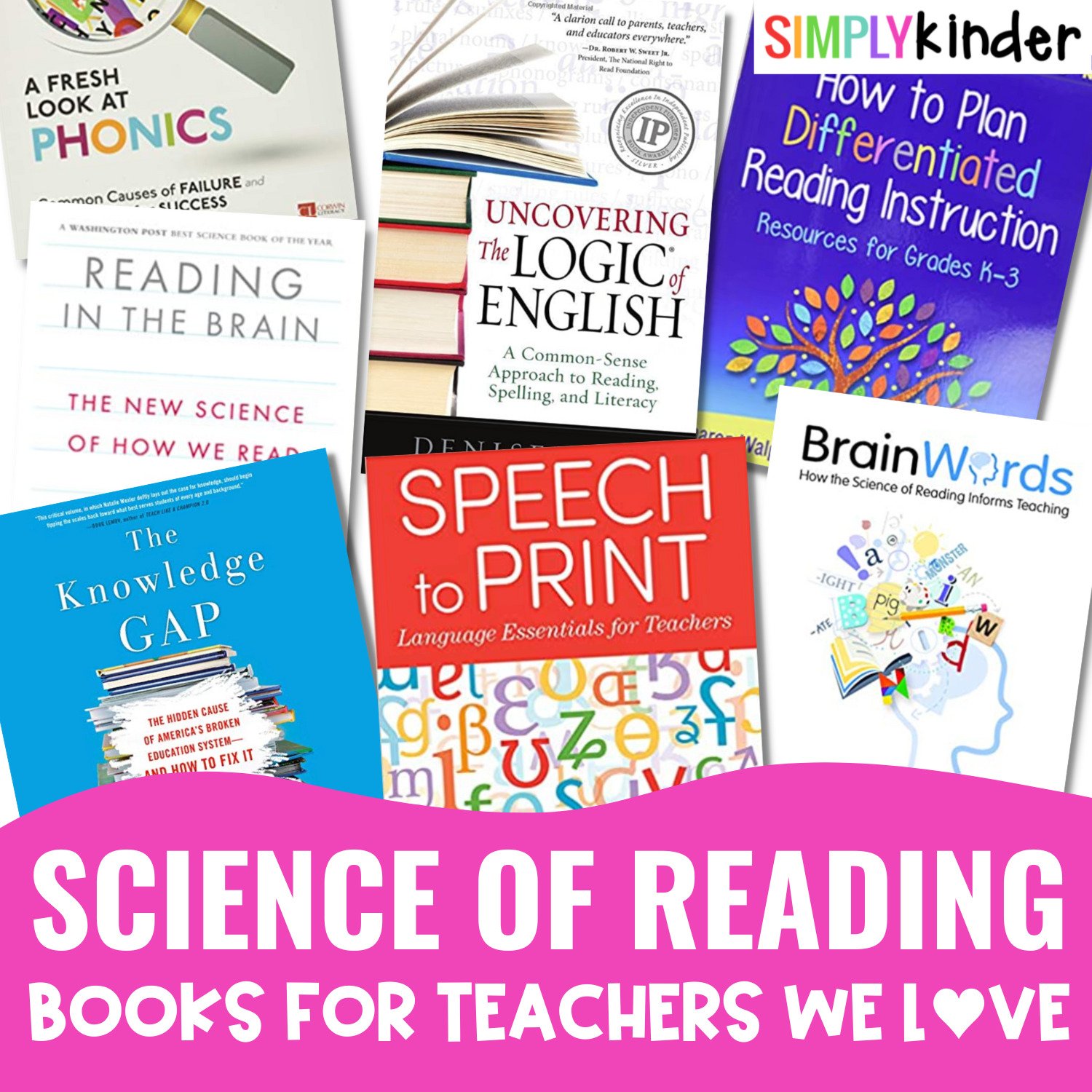Finding the best science of reading books can feel overwhelming with so many options available. This article helps you navigate through the top recommendations in this fascinating field. Engage with expert insights that enhance reading skills and comprehension. These books simplify complex theories and offer practical applications. Whether you’re a teacher or a parent, the best science of reading books cater to various needs, making the science of reading accessible and actionable for everyone.
Best Science of Reading Books
Reading is an essential skill that shapes our understanding of the world and enables lifelong learning. When it comes to mastering the art of reading, understanding the science behind it can make a significant difference. Additionally, finding the best book download site can enhance your access to these valuable resources. In this blog article, we delve into the best science of reading books that provide valuable insights for educators, parents, and anyone passionate about literacy.
What is the Science of Reading?
The science of reading refers to a vast body of research that examines how reading skills develop and how best to teach these skills. This research combines studies from psychology, neuroscience, linguistics, and education to create a comprehensive understanding of reading. Science of reading books are resources that synthesize this research, offering practical strategies for teaching reading effectively.
Top Science of Reading Books
Let’s explore some of the most highly recommended books that delve into the science of reading:
1. “Speech to Print: Language Essentials for Teachers” by Louisa Cook Moats
Louisa Cook Moats is a leading expert in the field of literacy education. Her book, “Speech to Print,” provides a comprehensive guide on the connection between spoken language and reading. This book is ideal for educators who want to deepen their understanding of how language skills impact reading development.
Key Highlights:
- Detailed explanations of phonetics, phonology, and morphology
- Practical tips for teaching phonemic awareness
- Insights into common reading difficulties and their solutions
2. “Essentials of Assessing, Preventing, and Overcoming Reading Difficulties” by David A. Kilpatrick
David A. Kilpatrick’s book is a must-read for anyone involved in literacy education. It covers the assessment of reading difficulties and offers evidence-based interventions. Kilpatrick emphasizes the importance of early identification and intervention to prevent long-term reading challenges.
Key Highlights:
- Comprehensive assessment tools and techniques
- Evidence-based intervention strategies
- Case studies illustrating practical applications
3. “Why Our Children Can’t Read and What We Can Do About It” by Diane McGuinness
Diane McGuinness explores the reasons behind reading difficulties and provides an in-depth analysis of effective teaching methods. Her book is both informative and practical, making it an excellent resource for educators and parents alike.
Key Highlights:
- Analysis of conventional reading instruction methods
- Alternative teaching approaches based on scientific research
- Strategies for supporting struggling readers
Understanding Key Concepts in Reading Science
To fully appreciate these books, it’s helpful to understand some key concepts in the science of reading.
Phonemic Awareness
Phonemic awareness is the ability to hear and manipulate the individual sounds (phonemes) in words. It is a critical skill for learning to read and spell.
Importance:
- Helps children understand the relationship between sounds and letters
- Essential for decoding unfamiliar words
- Foundation for developing reading fluency
Phonics
Phonics instruction teaches the relationship between letters and sounds. It helps children decode words by sounding them out.
Benefits:
- Improves word recognition
- Enhances spelling skills
- Supports reading comprehension
Fluency
Reading fluently means reading with speed, accuracy, and expression. Fluency bridges word recognition and comprehension.
Key Aspects:
- Reading smoothly without hesitations
- Recognizing words automatically
- Understanding and interpreting text
Vocabulary
A strong vocabulary is crucial for understanding what is read. Children need to know the meaning of words to comprehend the text fully.
Enhancement Techniques:
- Engaging in conversations
- Reading a variety of texts
- Teaching new words explicitly
Comprehension
Reading comprehension involves understanding and interpreting text. It is the ultimate goal of reading instruction.
Strategies:
- Asking questions about the text
- Summarizing passages
- Making connections to prior knowledge
Implementing Reading Science in the Classroom
Educators can implement the principles of reading science through various instructional approaches and activities.
Structured Literacy
Structured literacy is an instructional approach that emphasizes explicit, systematic teaching of reading skills. It is particularly effective for students with reading difficulties.
Components:
- Explicit instruction in phonemic awareness and phonics
- Systematic progression of skills
- Use of multisensory techniques
Multisensory Learning
Multisensory learning uses multiple senses to help children learn reading skills. This approach can be particularly beneficial for struggling readers.
Activities:
- Using sandpaper letters for tactile learning
- Incorporating music and movement
- Using visual aids and manipulatives
Reading Aloud
Reading aloud to children helps build their vocabulary, comprehension, and love for reading. It also provides a model of fluent reading.
Benefits:
- Exposes children to rich language
- Helps develop listening skills
- Encourages a positive reading culture
Resources for Parents
Parents play a crucial role in supporting their child’s reading development. Here are some resources parents can use:
Reading Apps
Several apps are designed to support reading development through interactive and engaging activities.
Popular Choices:
- Hooked on Phonics
- Starfall
- ABCmouse
Home Reading Activities
Parents can engage in various activities at home to support their child’s reading skills.
Ideas:
- Daily reading time
- Word games and puzzles
- Writing stories together
In conclusion, understanding the science of reading and utilizing the right resources can significantly impact a child’s literacy journey. These recommended books provide valuable insights and practical strategies that align with scientific research. Whether you are an educator, parent, or simply interested in literacy, these books are essential additions to your reading list.
Frequently Asked Questions
What are some top recommendations for books on the science of reading?
Some top recommendations for books on the science of reading include “Essentials of Assessing, Preventing, and Overcoming Reading Difficulties” by David A. Kilpatrick, “Speech to Print: Language Essentials for Teachers” by Louisa Cook Moats, and “Reading in the Brain: The New Science of How We Read” by Stanislas Dehaene. These books provide insights from experts in the field and cover various aspects of reading development and instruction.
Why should educators read books on the science of reading?
Educators should read books on the science of reading to better understand the cognitive processes involved in reading, identify effective teaching strategies, and address reading difficulties in students. These books offer research-based insights and practical approaches that can improve reading instruction and student outcomes.
Are there books on the science of reading suitable for parents?
Yes, there are books on the science of reading that are suitable for parents, such as “Raising Kids Who Read: What Parents and Teachers Can Do” by Daniel T. Willingham and “The Read-Aloud Handbook” by Jim Trelease. These books provide valuable guidance and tips for parents to support their children’s reading development at home.
How can books on the science of reading benefit struggling readers?
Books on the science of reading can benefit struggling readers by offering evidence-based strategies and interventions designed to address specific reading difficulties. Through understanding the underlying causes of reading struggles, educators and parents can implement targeted approaches that can help improve reading skills and confidence.
What topics do books on the science of reading typically cover?
Books on the science of reading typically cover topics such as the cognitive and neurological processes involved in reading, phonemic awareness, phonics, vocabulary development, comprehension strategies, and reading assessments. They also often include practical teaching methods and intervention techniques for various reading levels and challenges.
Final Thoughts
To sum up, the best science of reading books offer invaluable insights into how we learn to read. They provide practical strategies for educators and parents alike. These books emphasize evidence-backed methods to improve literacy. They are essential resources for fostering a deeper understanding of reading processes. Investing time in these titles can significantly enhance teaching practices and student outcomes. Ultimately, these best science of reading books are vital tools for anyone committed to improving literacy skills effectively.

